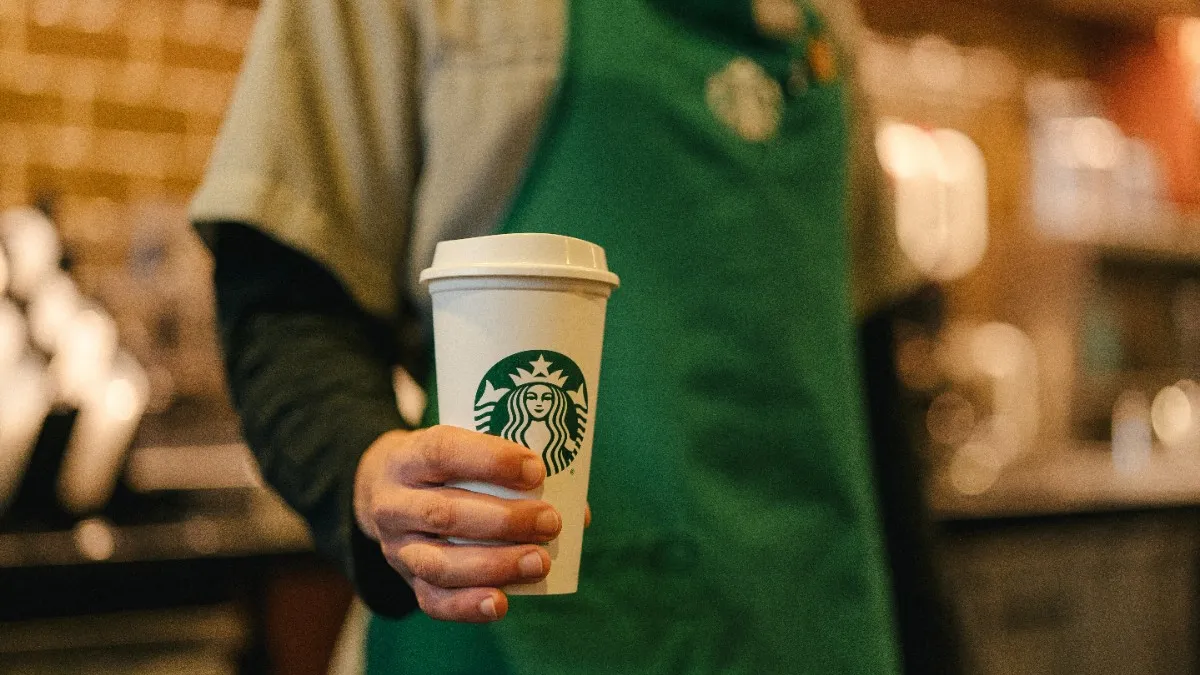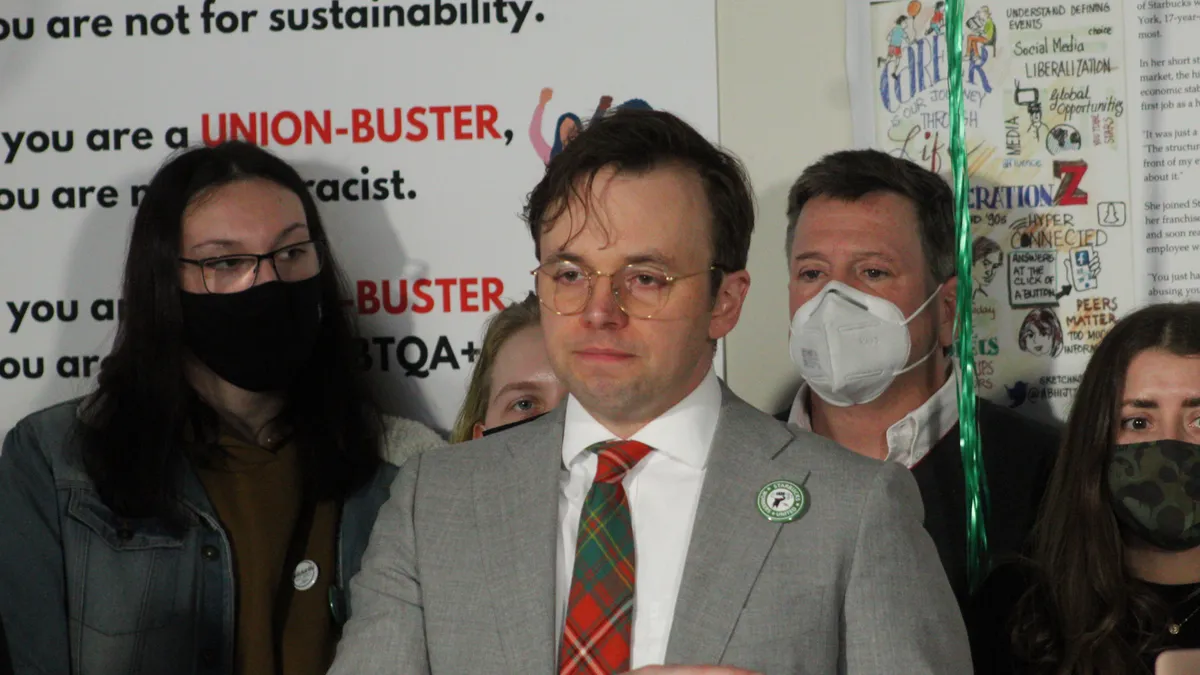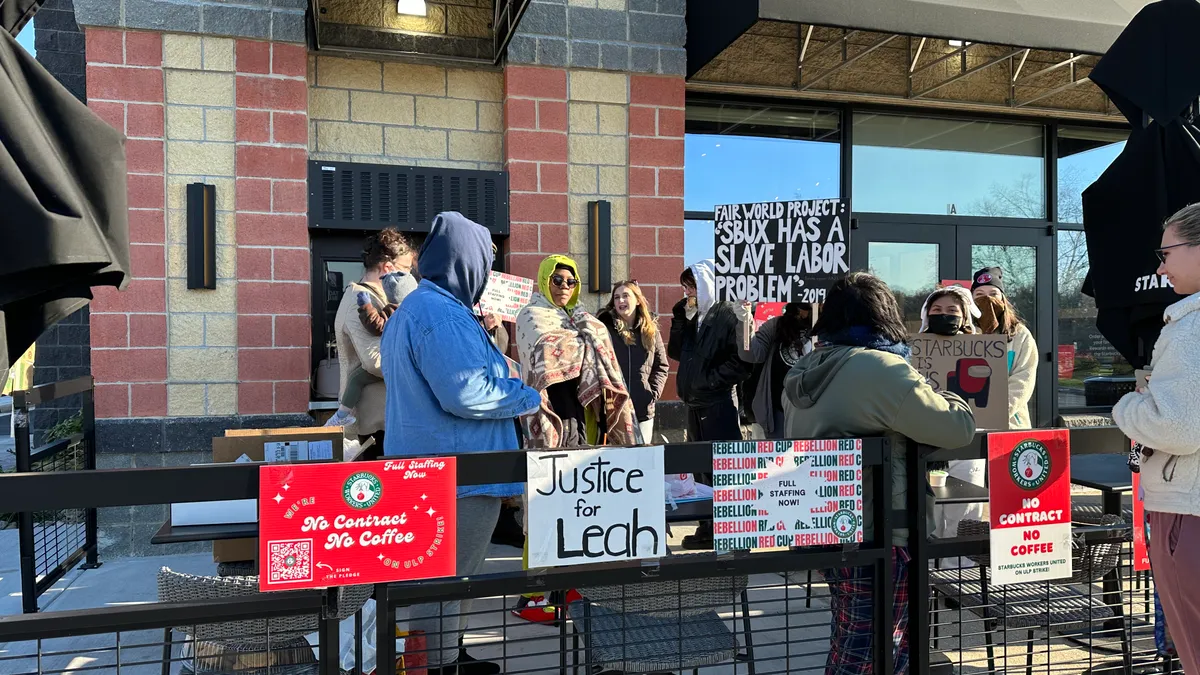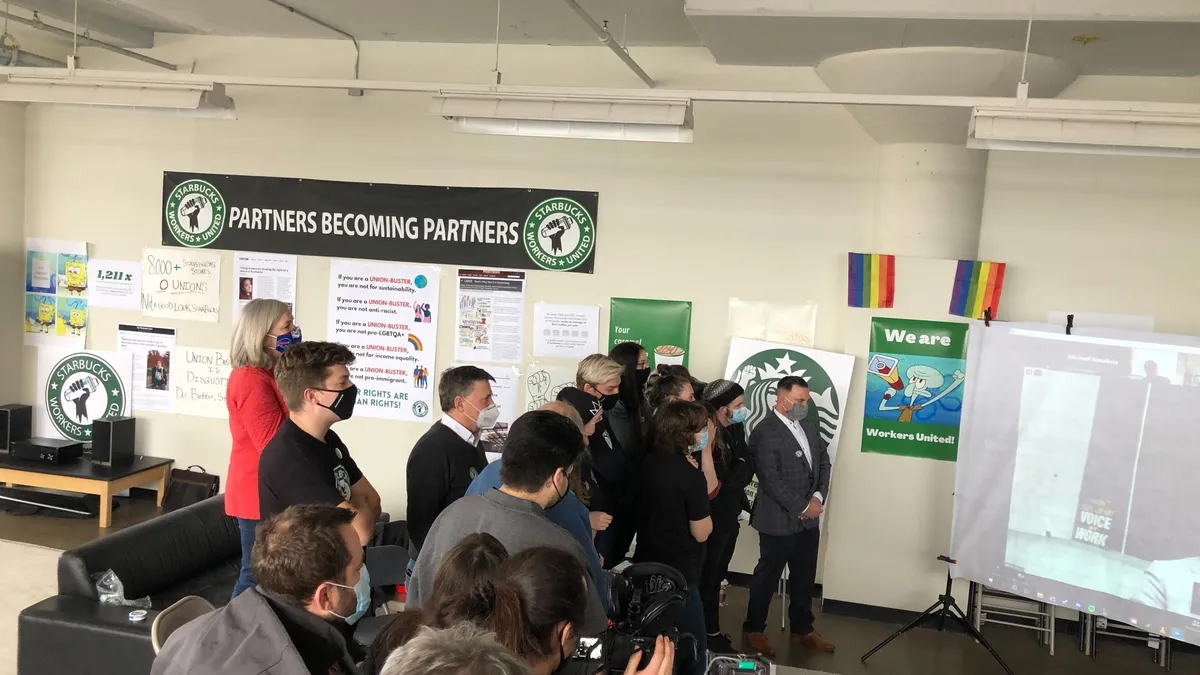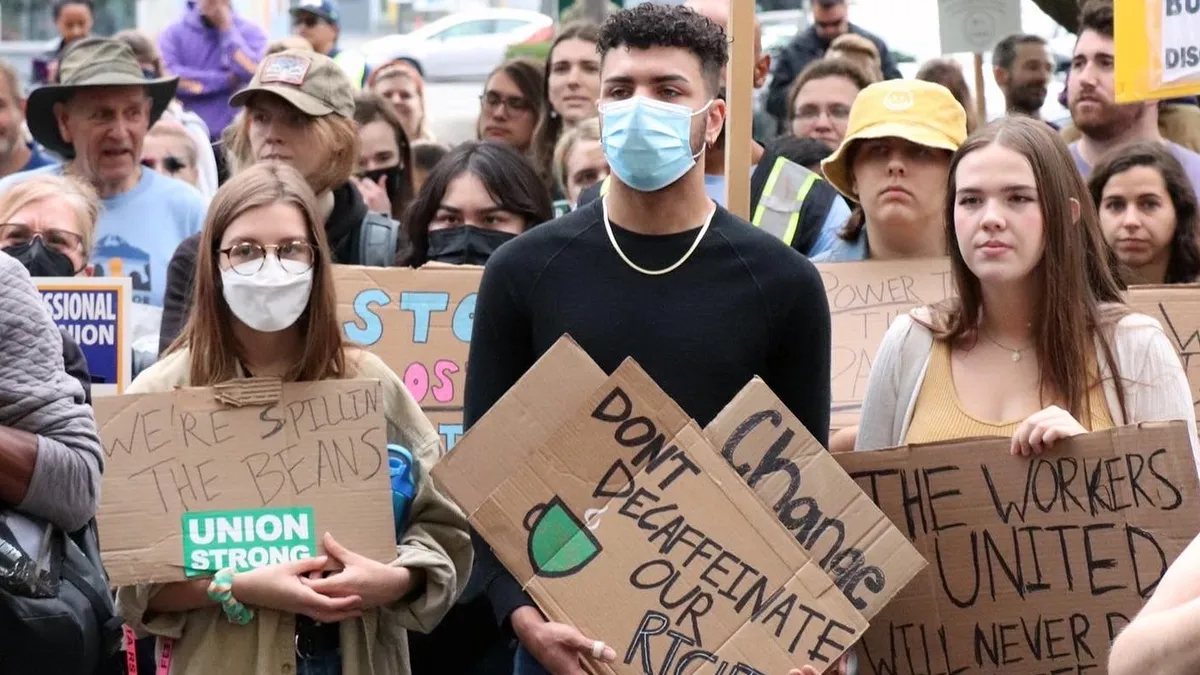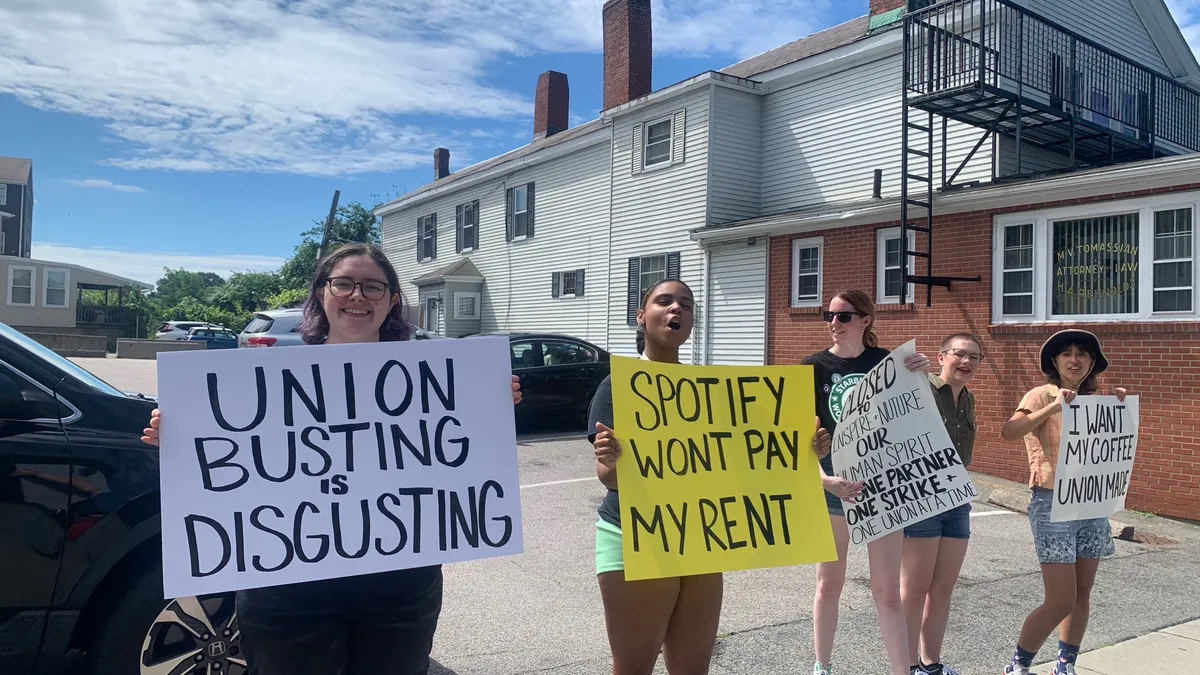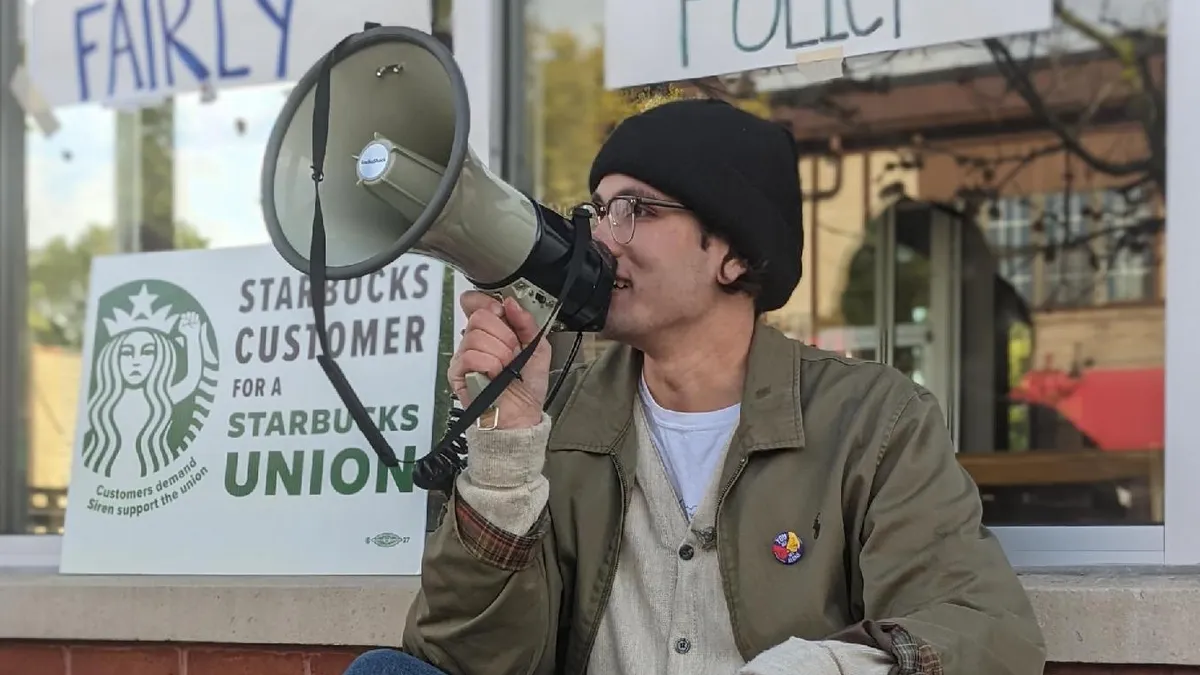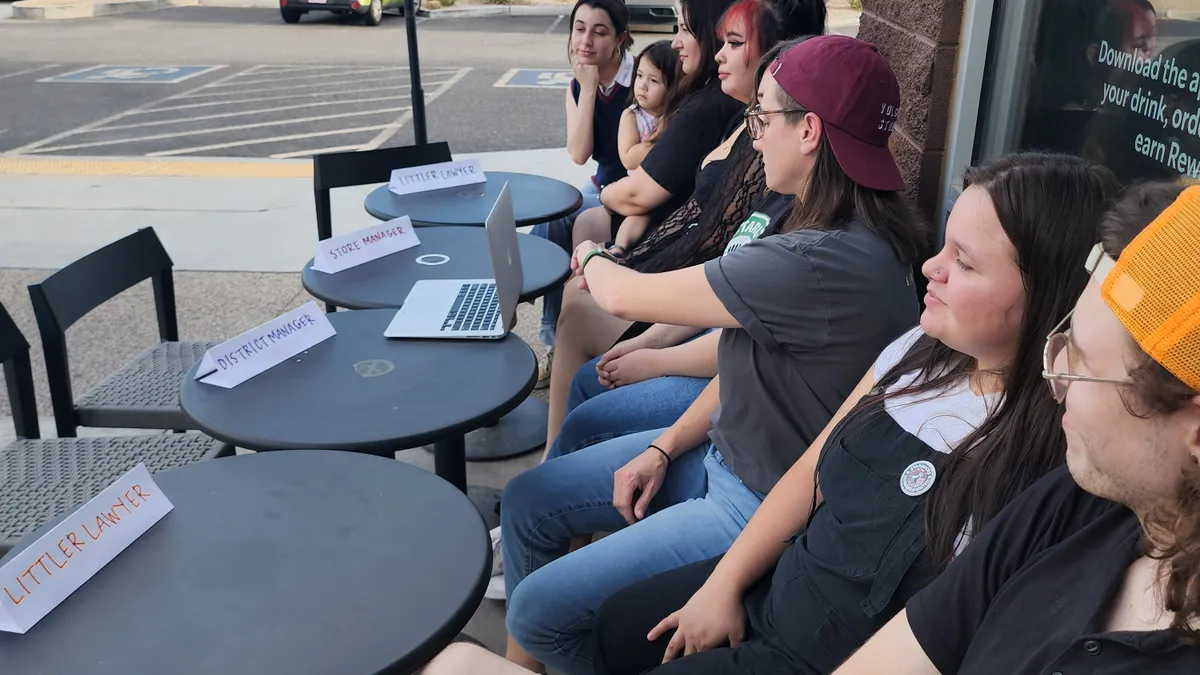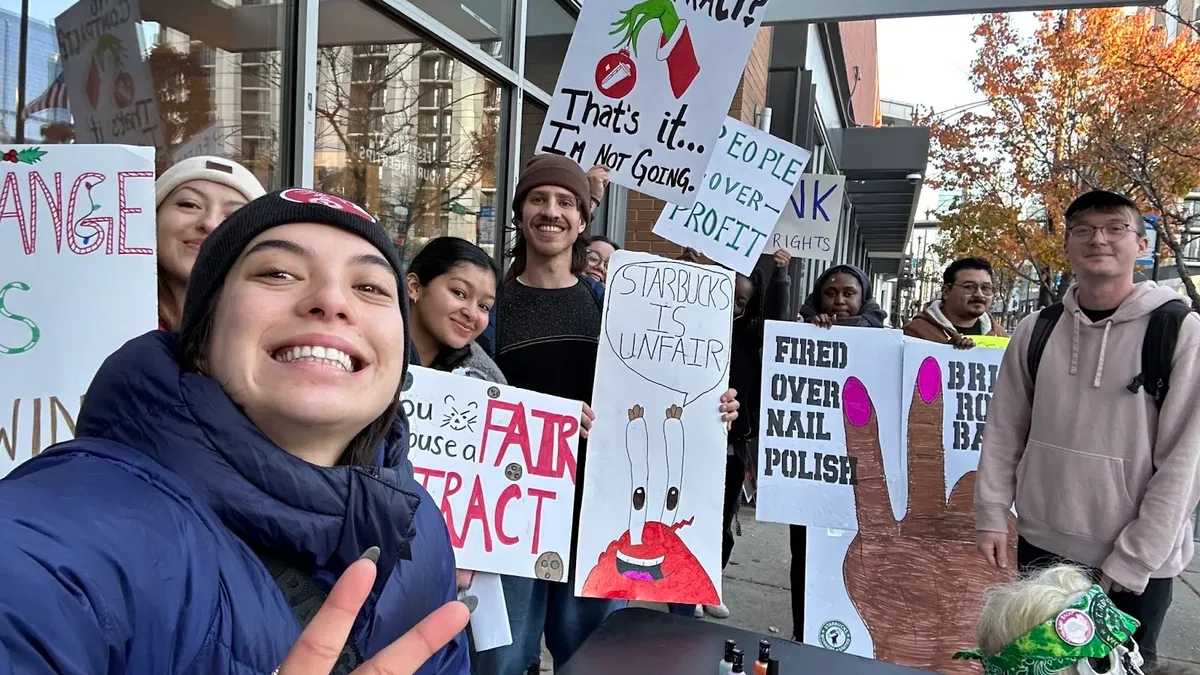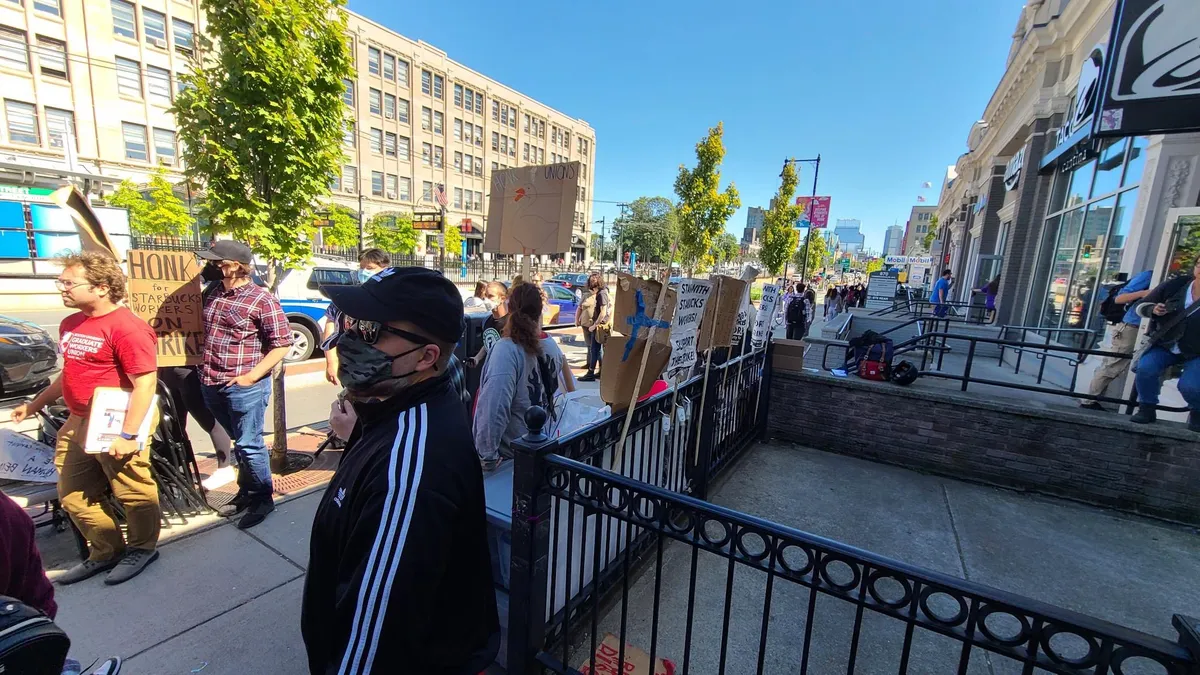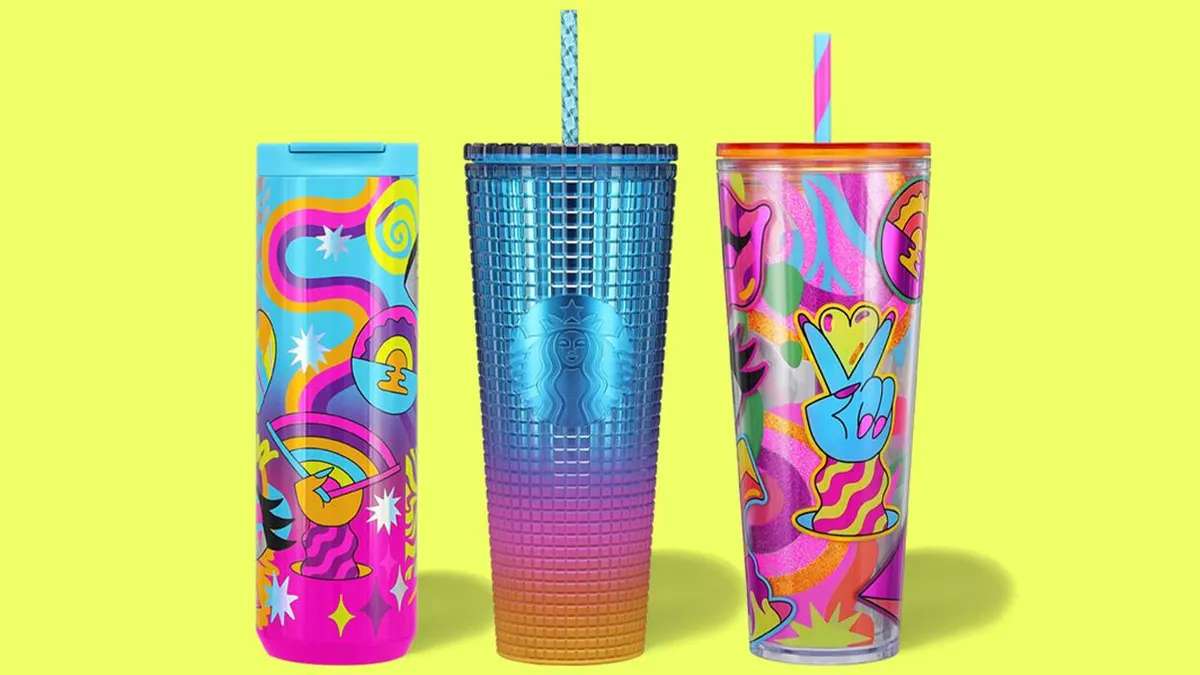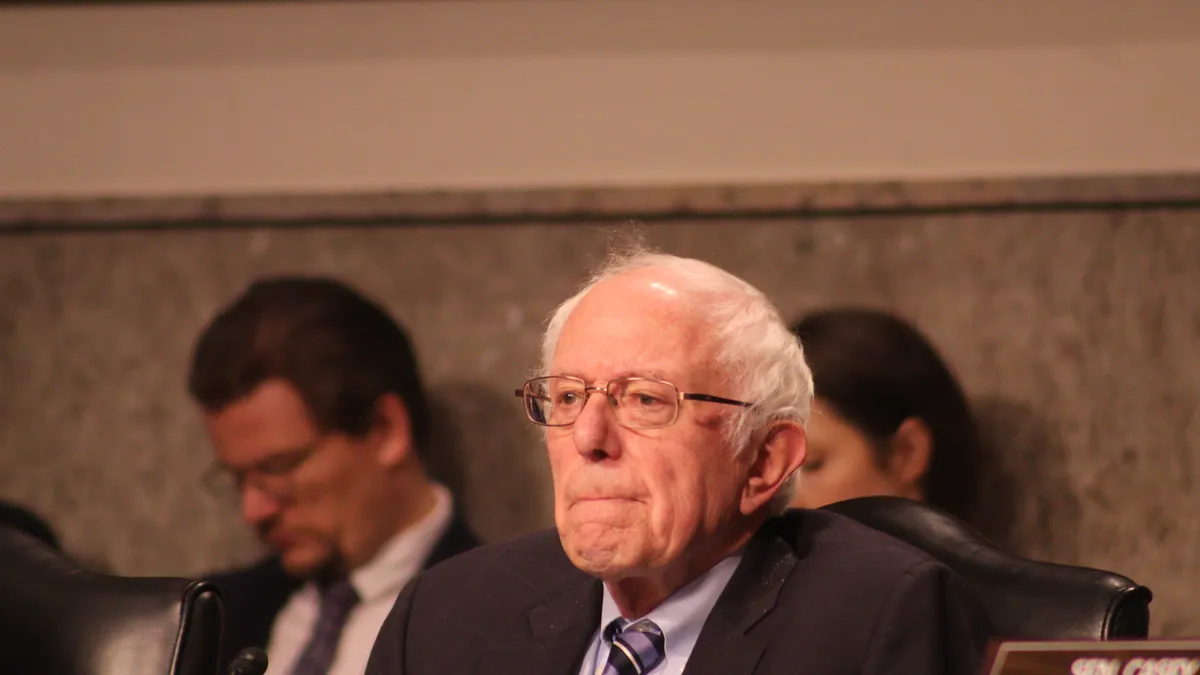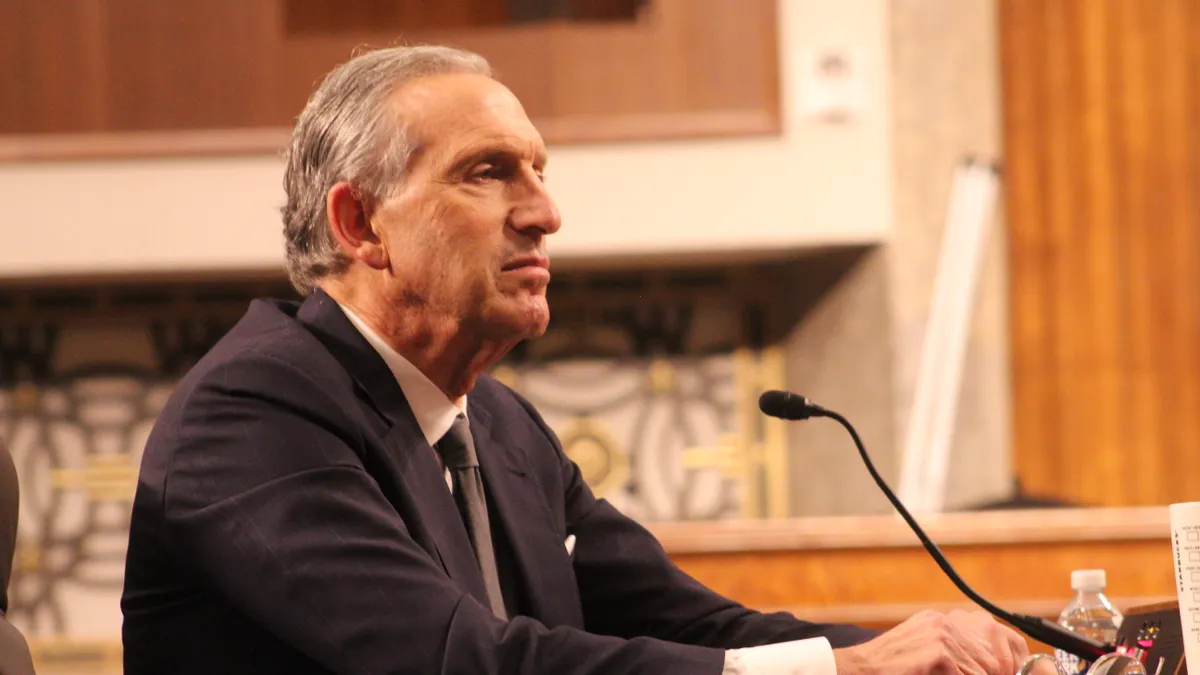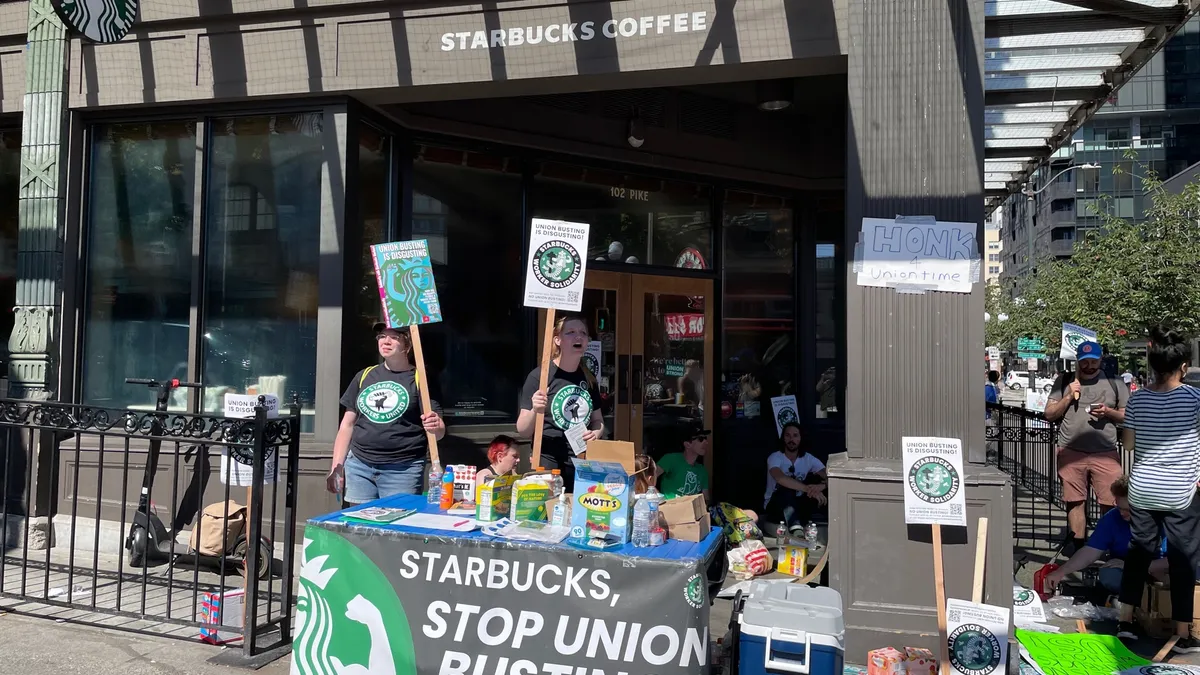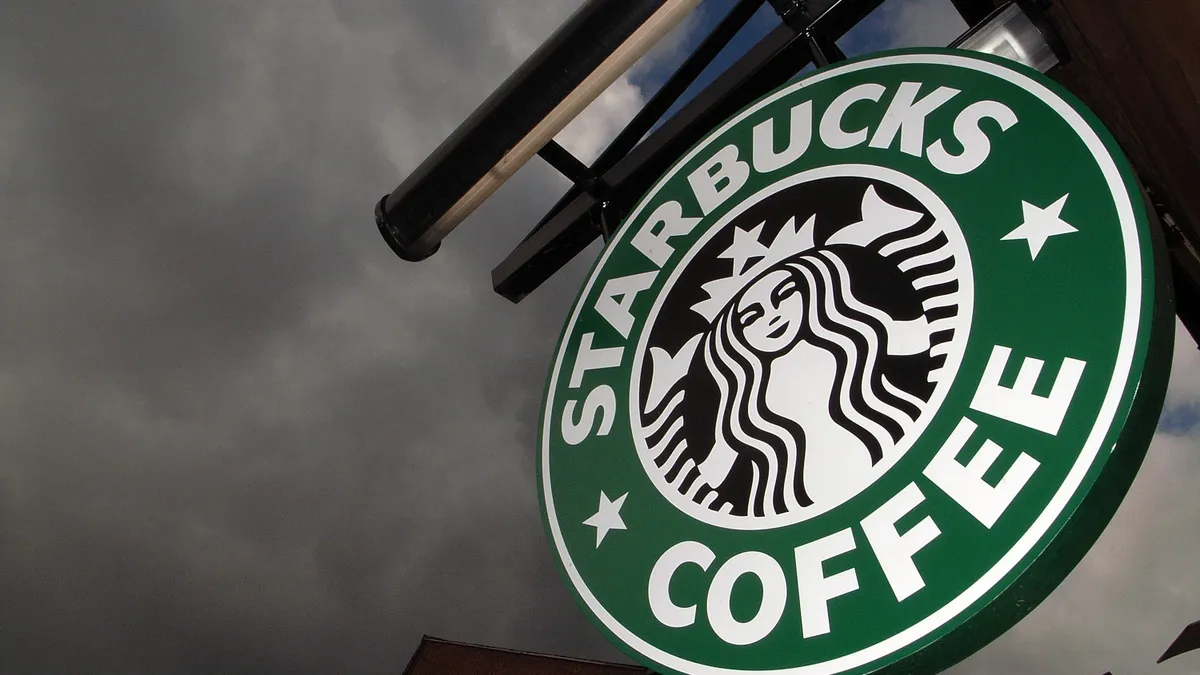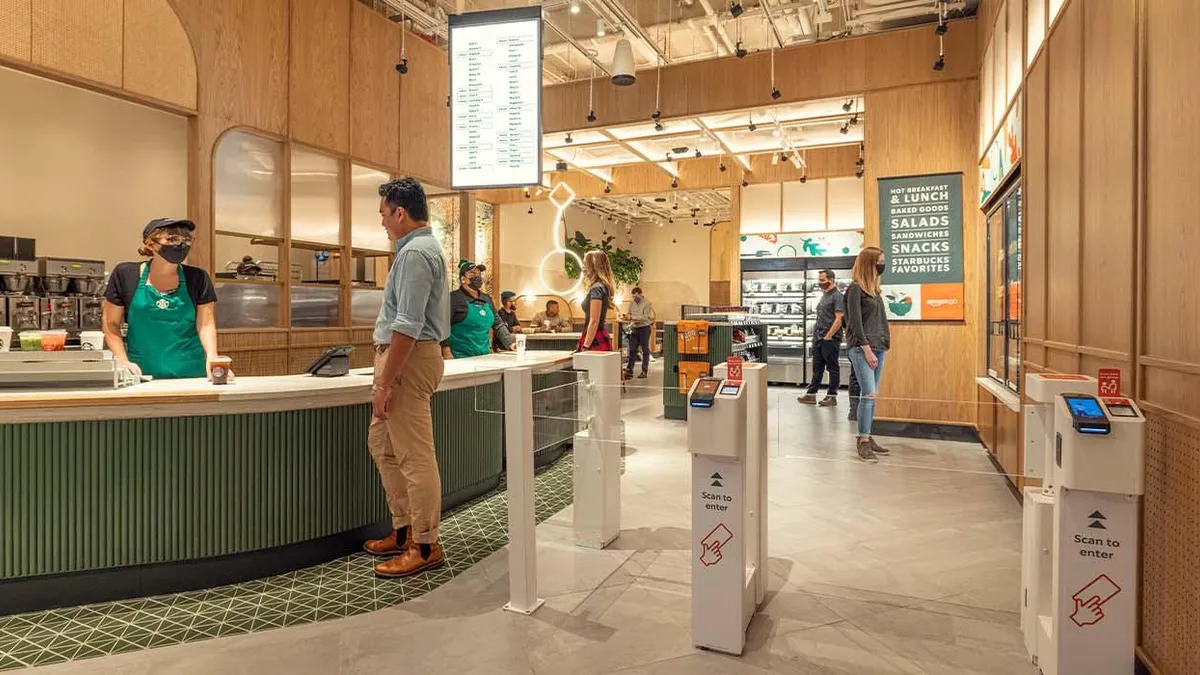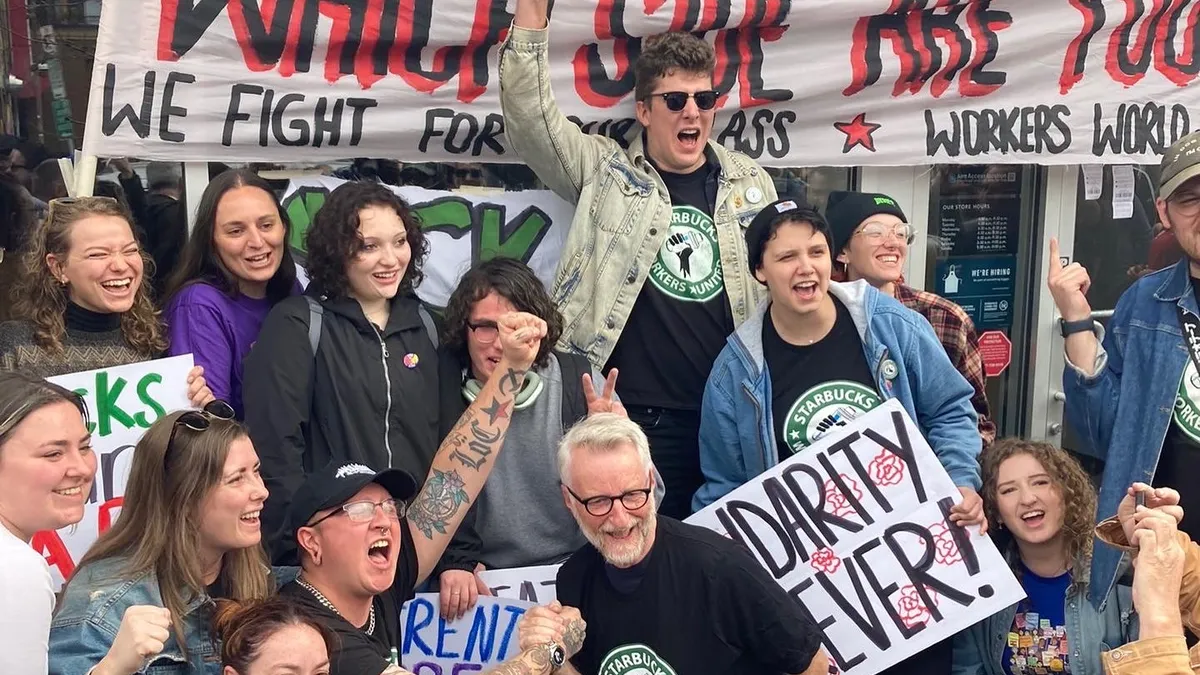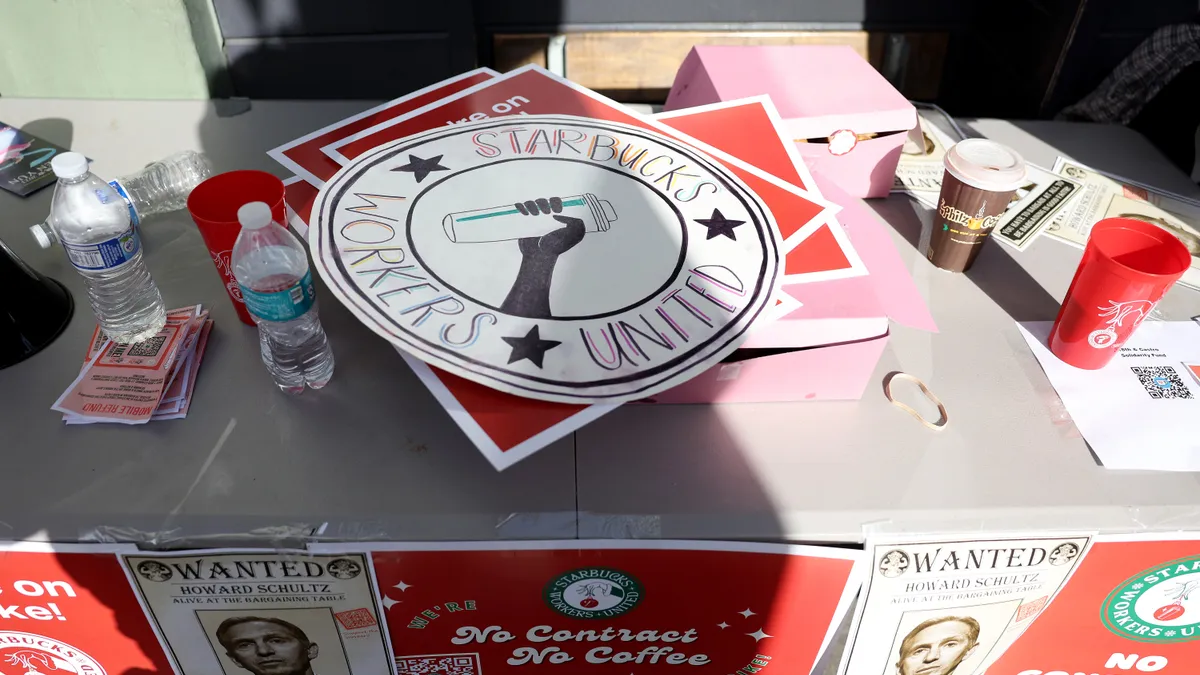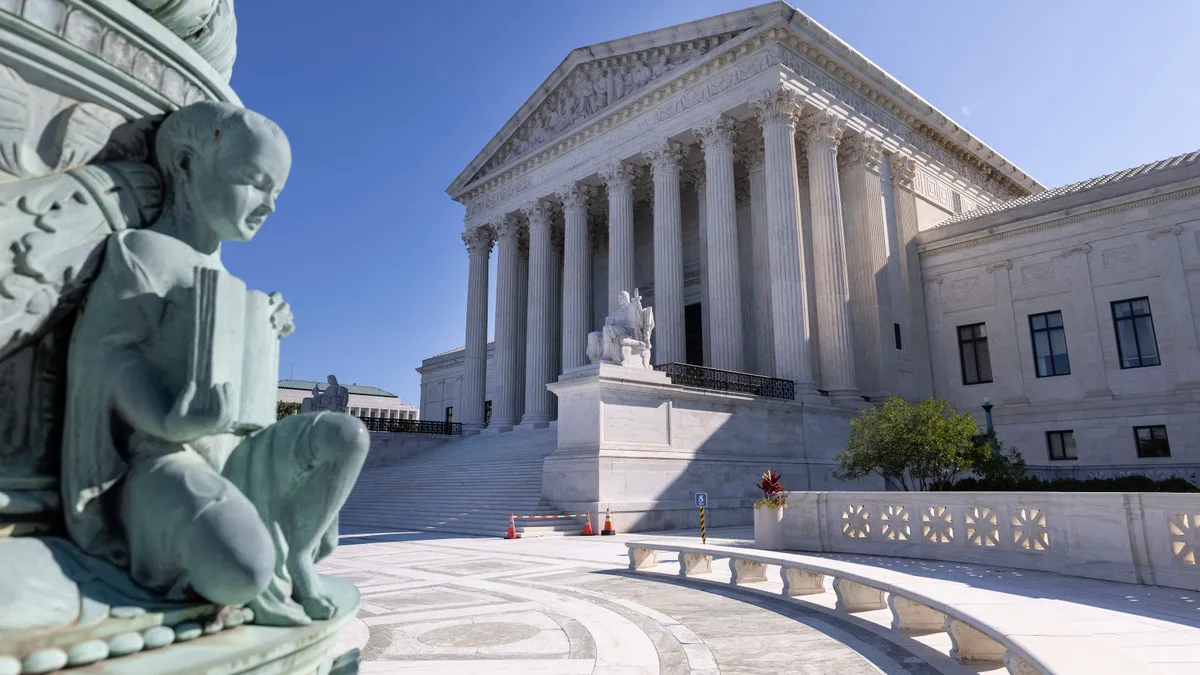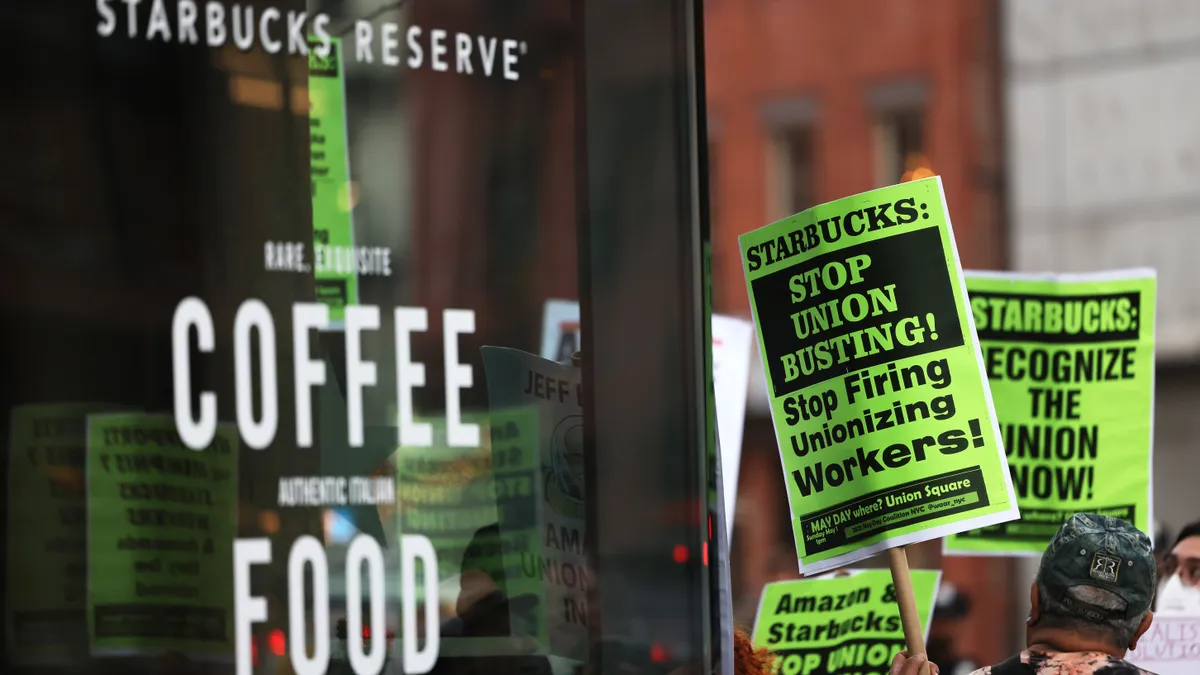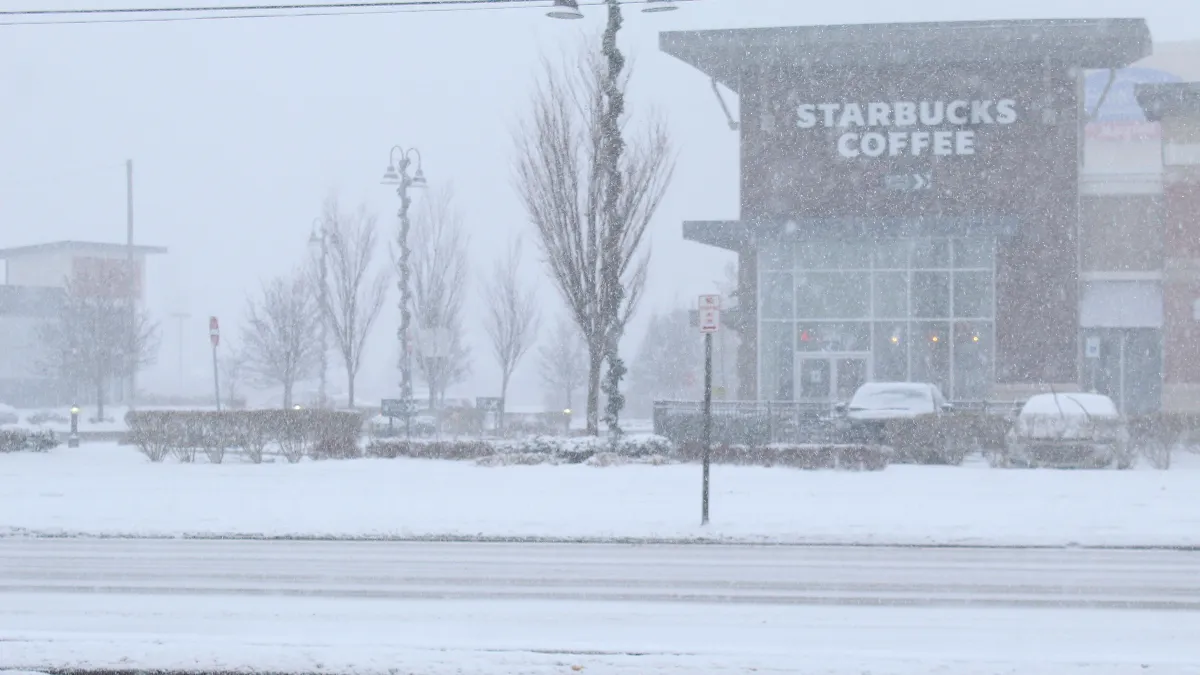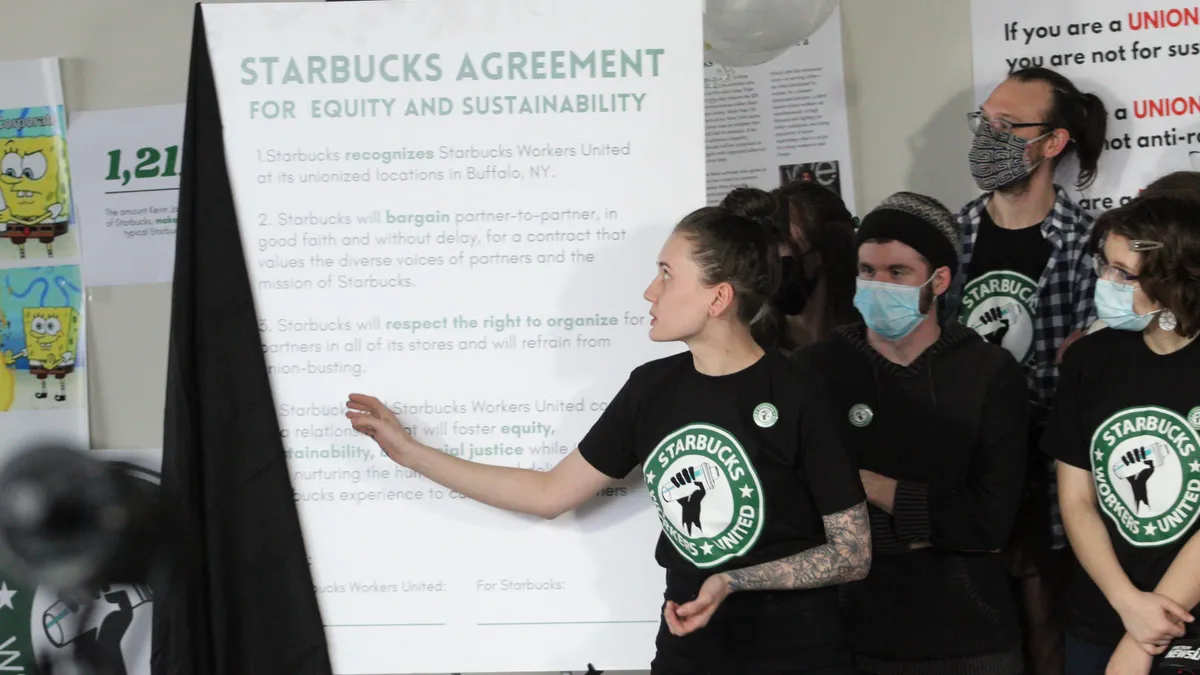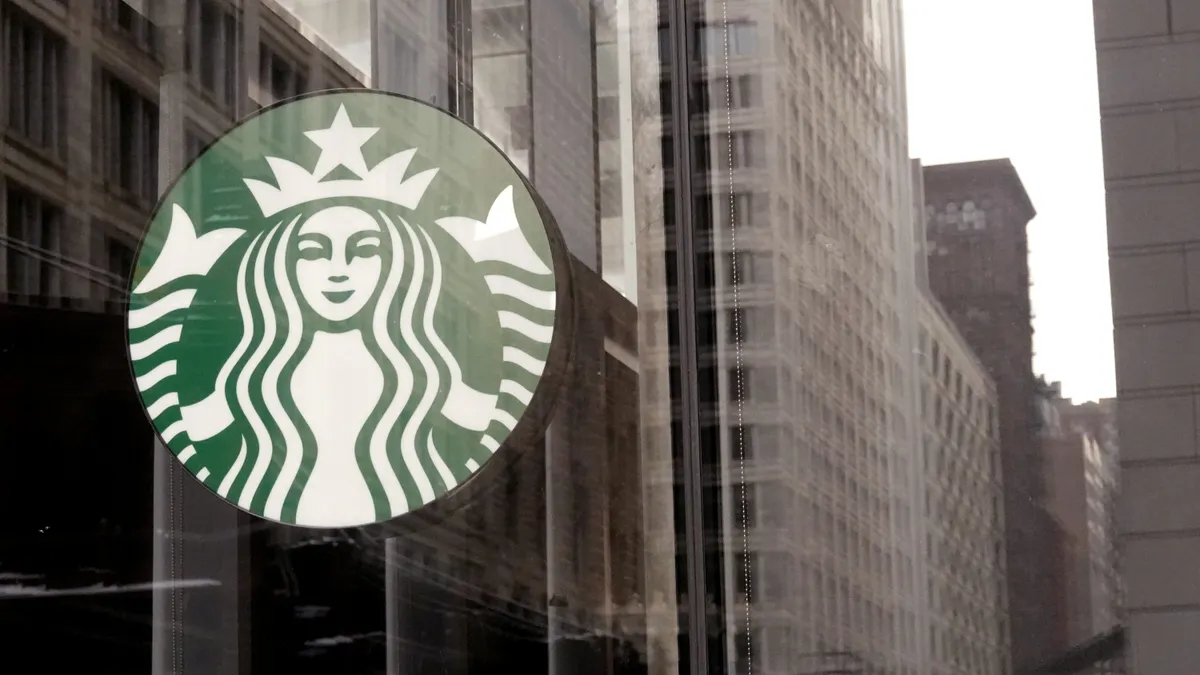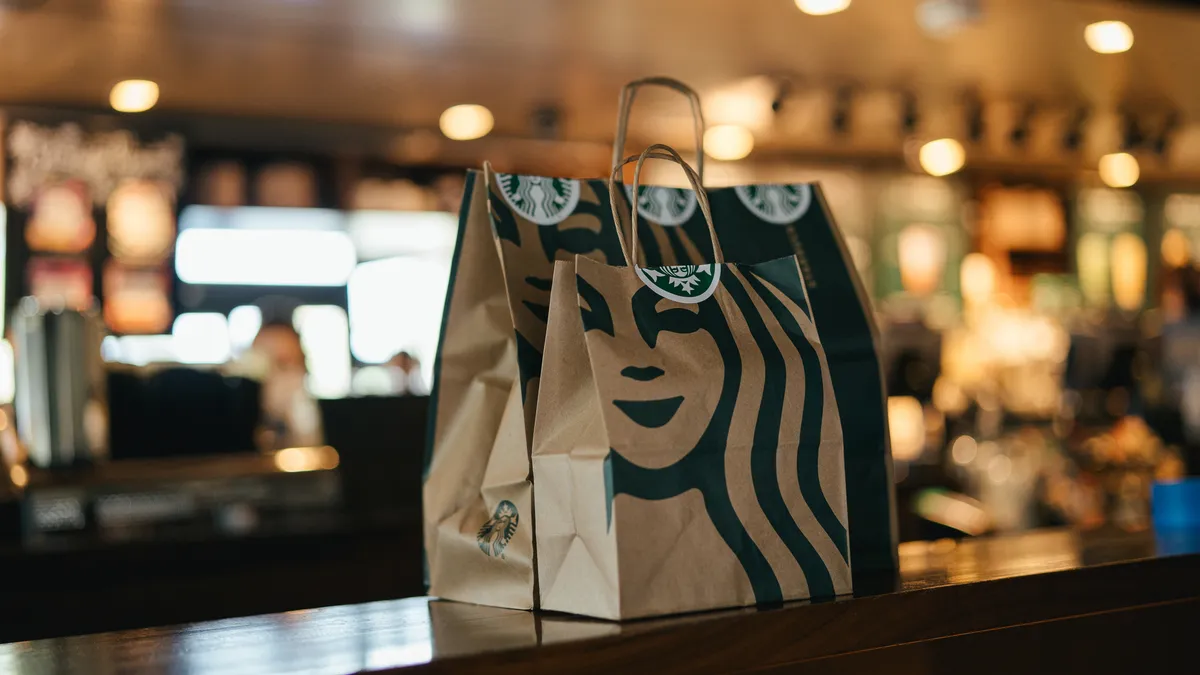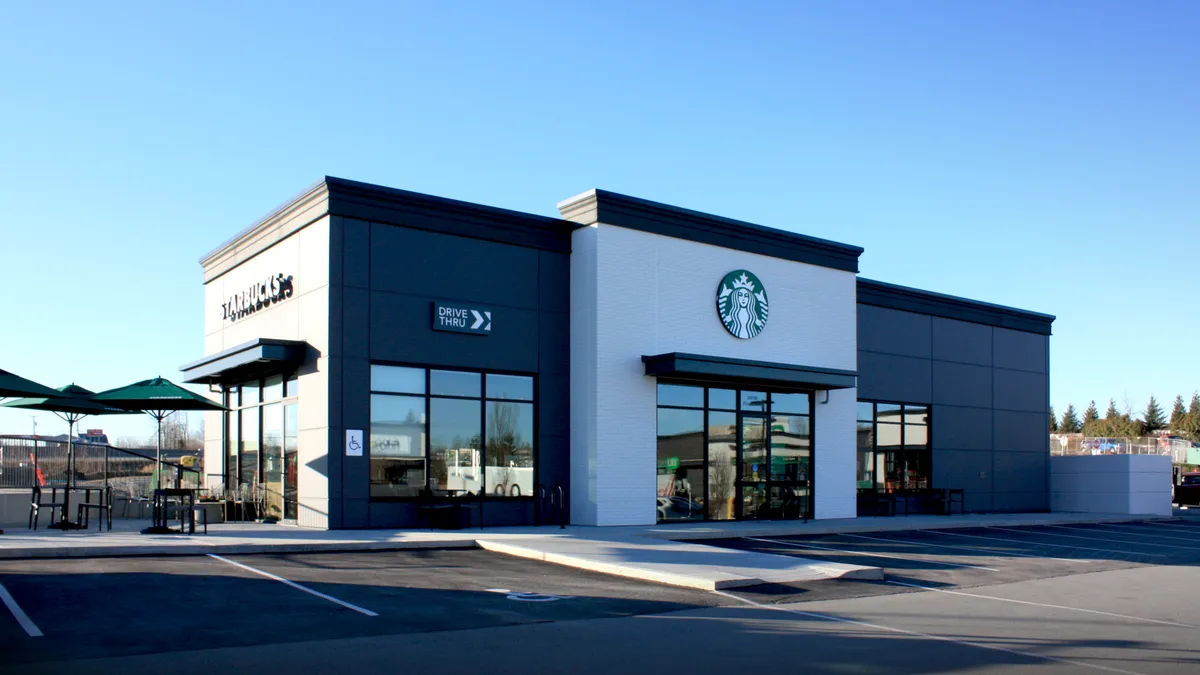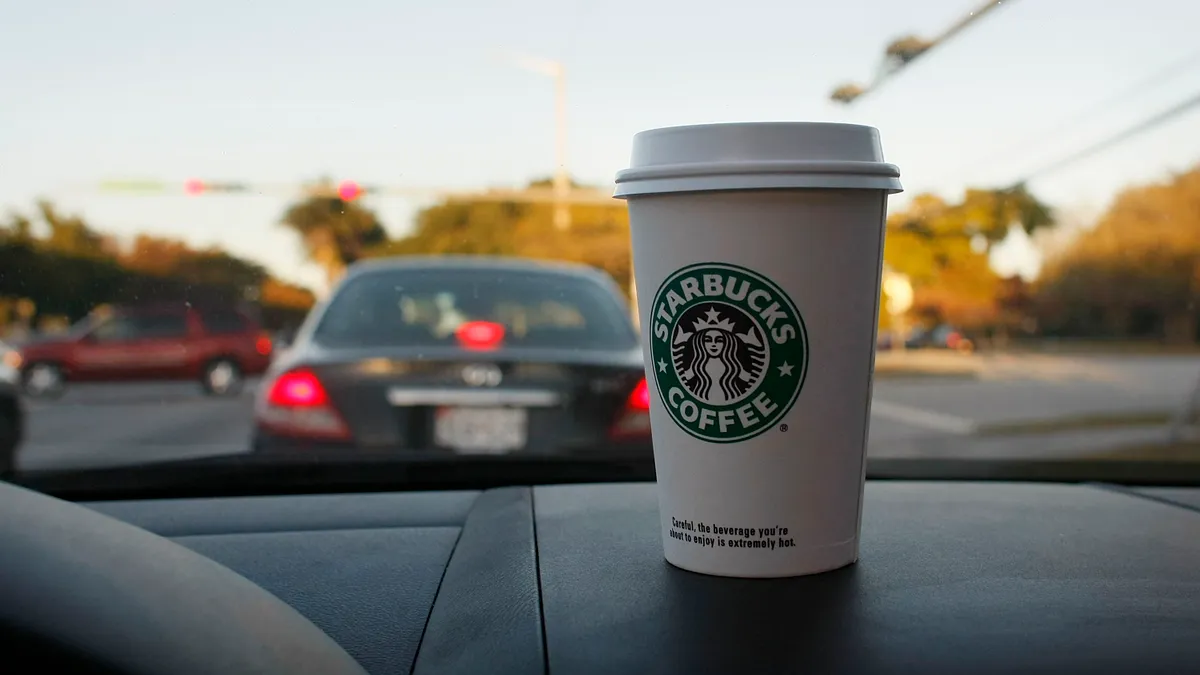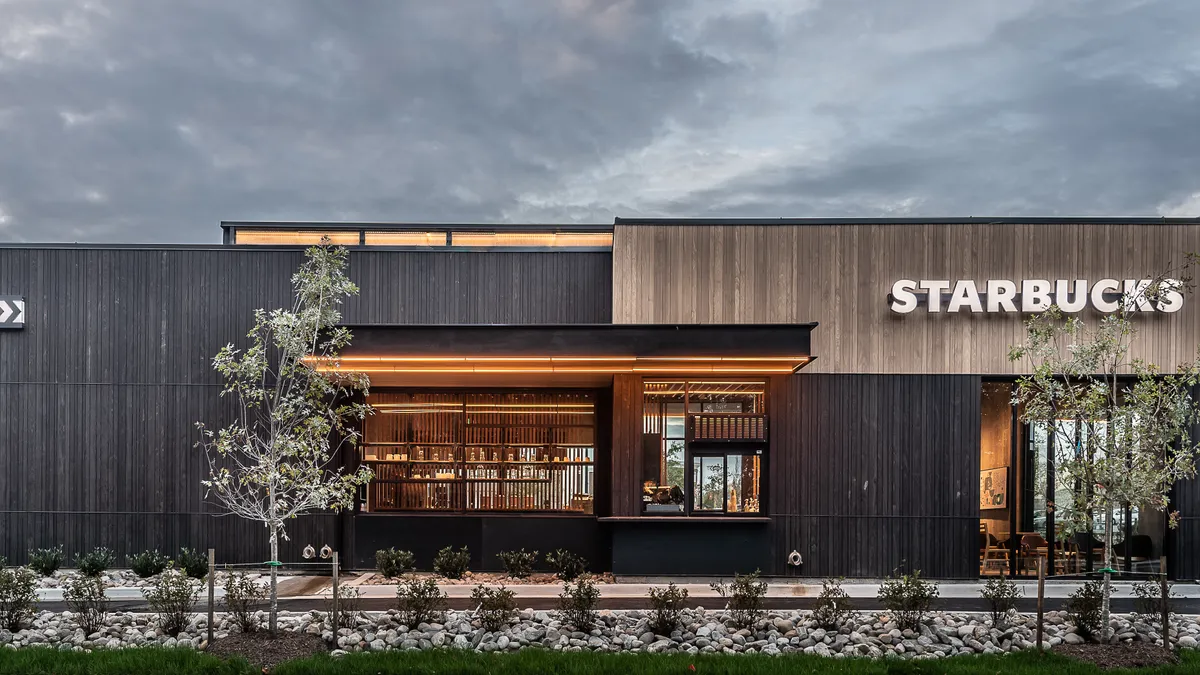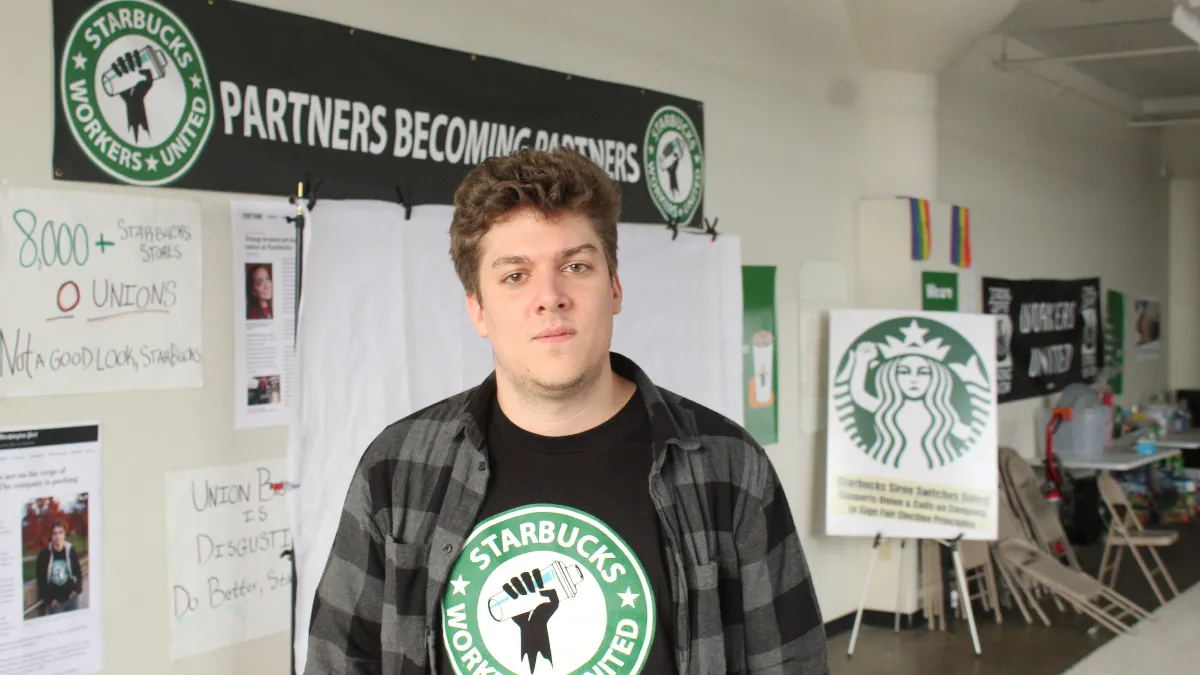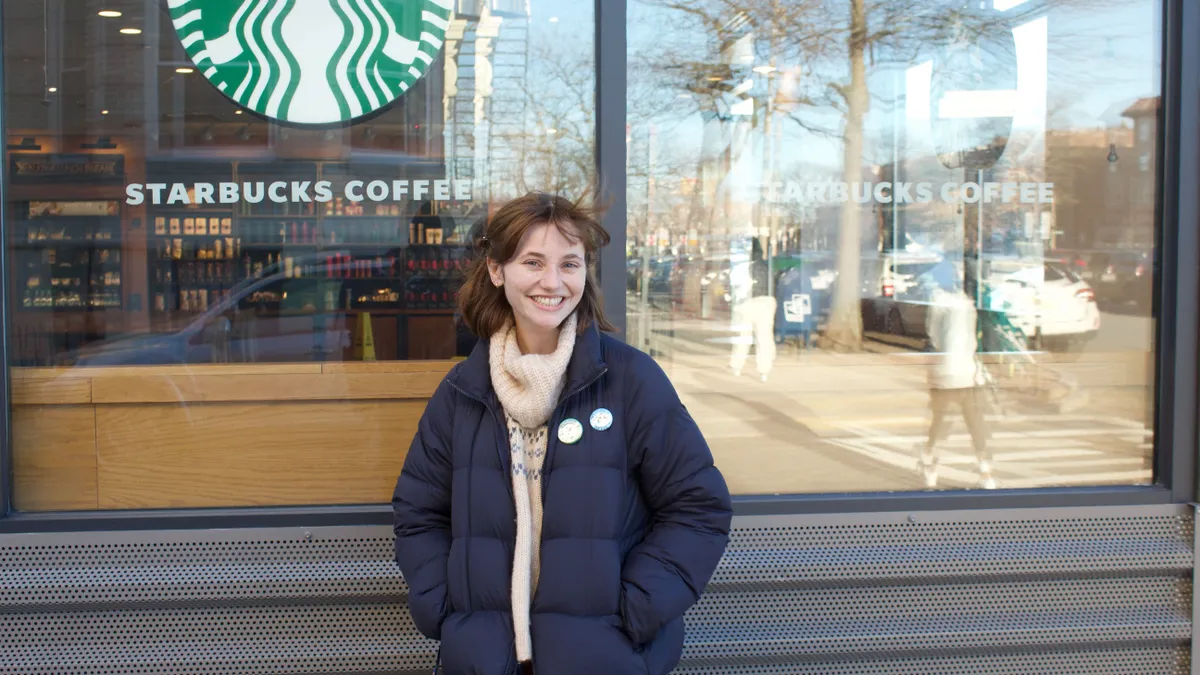Dive Brief:
- Starbucks barista Michelle Eisen filed documents with the National Labor Relations Board on Nov. 4, alleging her employer violated the law in its efforts to stop unionization.
- According to NLRB documents, Eisen alleges the company used "threats, intimidation, surveillance, solicitation of grievances, and the closing of facilities," against union supporters and organizers. The document was filed two days before Schultz visited Buffalo ahead of the union vote, which will take place between Nov. 10 and Dec. 8.
- A statement released by the workers' organization, Starbucks Workers United, said Starbucks brought in a task force led by Rossann Williams, the president of Starbucks North America, after the union organizing committee went public in August. Starbucks did not respond to a request for comment before press time.
Dive Insight:
After several dozen workers announced their intent to form a union in August, Starbucks took action to stop the union, according to Starbucks Workers United.
"We are constantly being watched by management and pressured to attend meetings with corporate," Jaz Brisack, a worker at one of the Buffalo Starbucks stores, said in an email statement released by Starbucks Workers United.
On Nov. 6, two days after Eisen filed NLRB charges against Starbucks, Howard Schultz, the founder and former CEO of Starbucks, also penned a letter to all Starbucks employees discouraging unionization.
"No partner has ever needed to have a representative seek to obtain things we all have as partners at Starbucks. And I am saddened and concerned to hear anyone thinks that is needed now," Schultz wrote, emphasizing the company's benefits package.
Starbucks asked employees to vote no on joining the union in a letter to U.S. employees in October, according to Nation's Restaurant News.
In September, Starbucks asked the NLRB to schedule elections at all Buffalo area stores as a single bargaining unit, rather than the petitioning stores. The NLRB sided with the organizing committee, scheduling an election by mail-in ballot at three stores.
Wilma Liebman, chair of the NLRB from 2009 to 2011, agreed with Starbucks Workers United.
"Employers are not allowed to tamper with the 'laboratory conditions' for a fair election during a union campaign. From all appearances, this employer is doing just that," Liebman said in the Starbucks Workers United statement.
Starbucks Workers United seeks to join Workers United, an affiliate of the Service Employees International Union according to Workers United's website. While a victory for Starbucks Workers United in the November election would mark the first successful union drive at a national QSR chain, it is not the first union drive in the restaurant industry.
Beginning in 2016, workers affiliated with the Industrial Workers of the World campaigned for and won NLRB elections at three Burgerville stores in the Pacific Northwest. From 2019 to 2020, workers at Spot Coffee, a regional chain of coffee shops in upstate New York, organized to win union recognition, and negotiated a contract, according to Barista Magazine.
The Buffalo regional office of the NLRB is responsible for investigating the charges filed by Michelle Eisen. The quasi-judicial process for adjudicating NLRB charges is complicated, but the administrative law judges working for the NLRB have the power to order companies to stop unfair labor practices and to interpret the NLRA.


